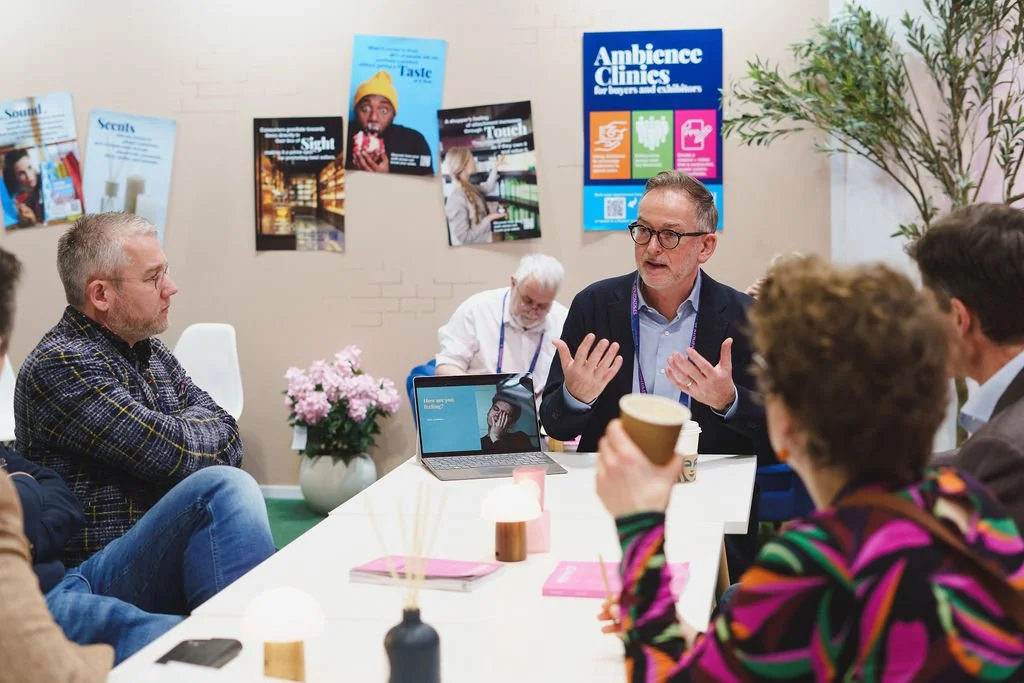The Ambience Architect: Stephen Spencer on designing experiences that last
A career in tourism rarely follows a straight line. For Stephen Spencer, founder of Stephen Spencer + Associates which is celebrating its 10th anniversary this year, it began on the shop floor and has encompassed heritage attractions, cultural institutions, visitor experience strategy, and consultancy. His journey illustrates how skills developed in one part of the visitor economy can evolve into a career dedicated to building resilience across organisations and destinations.
Starting on the shop floor
Like many in tourism, Spencer’s early years weren’t planned as a stepping stone to consultancy. Retail was his first profession, where he realised the sector is all about people. Every display was theatre, every interaction a chance to connect. “If you can be successful in retail, you can be successful in most other types of business,” he reflects. “Every customer is different, and establishing a relationship, sometimes leading them to the aspiration they didn’t even know they had, is the key.”
Retail honed skills in creativity, adaptability, and real-time problem solving. It also gave him an instinct for delighting customers, something that would underpin the next phase of his career.
A serendipitous move into heritage
His transition into attractions came by chance. A disappointing visit to the Tower of London shop coincided with a job advert for Head of Retail. He applied, and once in post brought the energy of Hamleys into one of Britain’s most famous landmarks.
That success led to new challenges at The Royal Collection Trust, just as Buckingham Palace was opening to visitors for the first time. “Expectations for retail were very low,” he recalls. “I had the opportunity to show how a shop could be more than a till point, it could be an extension of the visitor experience.”
Experience as a strategy
From then on, Spencer became an advocate for visitor experience as the “golden thread” linking every part of an organisation. At the National Trust for Scotland he worked closely with the Disney Institute, developing ways to embed customer experience at scale. He also learnt the importance of involving frontline teams early: “Every great project starts by involving the team that will ultimately deliver it.”
The projects that flourished were those where staff felt ownership and pride, not simply compliance. This lesson became a cornerstone of his later consultancy.
Becoming a consultant
Founding SS+A was a response to a clear need. Spencer wanted to help organisations unlock the value hidden in plain sight - whether through retail, visitor engagement, or commercial strategy.
The shift from client to consultant required new skills. “It’s quite a shock to have to convince others of your value,” he admits. “But once you lean into it, it becomes natural and vital.” Over time, consultancy gave him freedom to explore themes he felt strongly about: people-centred design, sustainable growth, and resilience.
Lessons from the journey
Retail is a powerful foundation - the skills of selling, storytelling, and engaging people transfer directly into tourism.
Experience is everything - visitors don’t see departments, they see moments; and those moments must add up to something coherent.
Teams deliver success - projects thrive when staff are engaged, trained, and inspired to take ownership.
Consultancy requires clarity - being able to communicate your proposition and your value is as important as the expertise itself.
Looking forward
For the tourism sector, Spencer sees three priorities: sustainability, people, and technology. Sustainability is increasingly non-negotiable, for funders and audiences. People remain the most undervalued asset. “We lose too many who start at the front line but can’t see a future. That’s a huge own goal.” Technology, particularly AI, presents opportunities and risks, but must be used to enhance, not replace, human experience.
Advice for aspiring professionals
For those starting out in tourism, Spencer’s advice is clear - seek mentors, build networks deliberately, and don’t be afraid to take side-steps. For those considering consultancy, clarity of focus and confidence in communication are vital. To his younger self? The advice is simple - “Pace yourself.” Success comes not from doing everything yourself but from building teams and sharing responsibility.
From retail displays to royal palaces, heritage trails to cable cars, Stephen Spencer’s career shows the richness and diversity of working in tourism. It also highlights how consultancy provides a platform to share skills across sectors, build resilience in organisations, and create meaningful visitor experiences.
In a sector often undervalued yet vital to culture, community and economy, his story is a reminder that careers in tourism can be unexpected and profoundly rewarding.


